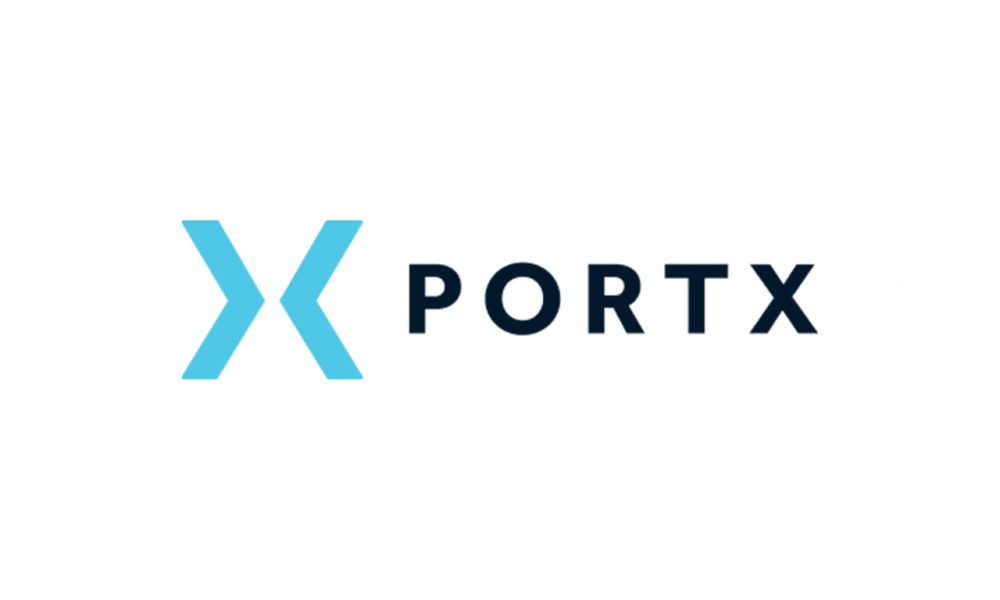Category: General
Fintech upstart PortX secures $16.5 million in funding and establishes a fresh subsidiary dedicated to catering to credit unions.
In the latest news, PortX, a fintech startup based in the Seattle area, has secured $16.5 million in fresh funding.
The investors leading this Series B funding round are Fuse, a venture capital firm based in Seattle that recently raised its own $250 million fund, and Curql, a collective of credit unions. Notably, BankTech Ventures, EJF Capital, and the Btech Consortium have also participated in this funding round.
PortX, under the leadership of CEO David Wexler, specializes in providing financial services infrastructure software to community banks, credit unions, and fintech companies. Their mission is to assist clients in implementing embedded banking-as-a-service solutions, reducing reliance on external vendors, and simplifying access to banking data. The new capital infusion will support various initiatives, including the enhancement of their AI offerings and data automation components.
In addition to this, with the support of Curql, PortX is establishing a Credit Union Service Organization (CUSO) aimed at better serving its credit union clientele. Curql manages a strategic investment fund that represents 68 credit unions and industry partners in the credit union sector.
PortX, headquartered in Mercer Island, Washington, was spun out of ModusBox the previous year. ModusBox, founded in 2013, initially focused on designing, developing, and supporting financially inclusive, national-level real-time payment networks.
Brendan Wales, a founding partner at Fuse, expressed his confidence in PortX, stating, “Their vision and technology align perfectly with the industry’s evolving needs.” He emphasized that this marks their second investment in PortX, highlighting their belief in the transformative potential of open banking in shaping the future of commerce and financial services.
As for the overall funding received by PortX, it now totals $26.5 million, including a previous $10 million from a Series A round conducted a year ago. Currently, the company employs a workforce of 78 individuals.
The monarch rejoices as Candy Crush Saga reaches its milestone of 15,000 levels and achieves a remarkable $20B in revenue
Activision Blizzard’s King division is marking two decades in the business, and they’ve proudly announced that Candy Crush Saga now boasts a staggering 15,000 levels in its match-3 game.
The company has revealed that Candy Crush Saga has achieved a remarkable milestone, amassing a jaw-dropping $20 billion in revenue and garnering a staggering five billion downloads since its initial launch in 2012 on mobile platforms. This achievement can be likened to a seismic impact on the video game industry, considering the game had a mere 2,000 levels in 2016.
With its main offices located in London, England, and Stockholm, Sweden, along with a global presence through various offices, King’s gaming titles, such as Candy Crush Saga, Candy Crush Soda Saga, and Farm Heroes Saga, maintain their global appeal.
King remains an enduring cultural sensation, boasting an impressive 238 million monthly active users in the second quarter of 2023. Its collection of mobile games serves as a unifying platform for players of diverse ages and backgrounds worldwide.
For six consecutive years, Candy Crush has held the position of the top-grossing game franchise in the U.S. app stores. This impressive achievement can be attributed to the ongoing investments made in significant brand partnerships, which have kept King and Candy Crush firmly embedded in popular culture.
Candy Crush Saga, designed for short, engaging gaming sessions, boasts a remarkable accomplishment – its players have collectively conquered an astounding five trillion levels. As a fun tidbit, if you were to combine the distances covered by all the swipes made in Candy Crush Saga over the past five years, you’d almost complete a journey around the world seven times.
The game’s triumph extends beyond individual gameplay. In the year 2023, Candy Crush Saga hosted a historic All Stars tournament, offering a substantial prize pool of $250,000 and exclusive rings crafted by the renowned celebrity jeweler, Icebox.
During this tournament, over 300 billion candies were collected, and Candy Crush Saga crowned its ultimate All Stars champion following a thrilling live final event held at King’s headquarters in London.
A long-term focus

Eleven years ago, Green became a part of the company during its smaller days, comprising just 150 individuals. This period coincided with the launch of Candy Crush Saga on mobile platforms. Initially stationed at the London studio, Green began his journey by working on Farm Heroes Saga before transitioning to Candy Crush Saga in 2015.
During those times, many companies were attempting to adapt PC and mobile games for mobile platforms, followed by launching the next game in quick succession.
One of our early strategic decisions was to envision Candy Crush as a long-lasting phenomenon. We pondered on how to approach mobile gaming differently from PC and console gaming. This led us to make substantial long-term investments, not only in the game’s architecture but also in reorganizing our efforts.
The company embarked on a significant journey of developing intricate systems for the game, often requiring months or even years to complete. The core idea was to enhance the game’s quality incrementally every day, creating a compounding effect over time.
Green expressed, “If we believe in the game’s enduring potential, it will progressively evolve into something truly remarkable in the years ahead. This shift in mindset was one of the most pivotal moments I’ve experienced.”
In 2017, the company expanded its scope by venturing into activities beyond the game itself to stimulate demand. This included ventures like a television show and various partnerships.
“Over the past year, our focus has shifted even more towards these partnerships, as we aim to introduce substantial innovations into the game,” Green added. “Combining our long-term incremental approach with these bold leaps and efforts to expand beyond the app encapsulates the current narrative of where we stand.”
Green candidly shared that he’s currently on level 1,739 in the game, acknowledging that he may not be the best player and progresses slowly. Nevertheless, he values the sense of community and the enduring relationships that players have cultivated with the game over time.
Ongoing content drops
Looking ahead to the next two decades, King maintains its unwavering commitment to its player community, diligently pursuing its mission of infusing the world with playfulness. The division boasts a workforce exceeding 2,000 individuals.
Recognizing the insatiable appetite of players for novel challenges and captivating, freshly-crafted content, King remains dedicated to channeling the boundless innovation and creativity of its team. This relentless pursuit drives the development of thrilling new adventures and immersive experiences for its steadfast community of gamers.
In a momentous occasion for the iconic game Candy Crush Saga, which marked its 10th anniversary last year, King is on the verge of unveiling Level 15,000. Staying true to the cherished traditions of King’s culture, the newest members of the design team have been granted the honor of crafting this milestone level.
Embracing new technologies
AI will play a significant role in shaping the future of mobile gaming, offering immense potential to revolutionize the development and player interaction in King’s games in the years ahead. King is committed to harnessing these emerging technologies and unlocking their capabilities to elevate the player experience, making game design and gameplay more engaging, responsive, and adaptable.
One illustration of this is the application of AI to enhance our understanding of players’ interactions within games and live game operations. This AI-driven approach empowers our teams to enrich the player experience by providing highly relevant content and options tailored to individual players.
As an example of our AI initiatives, we’ve been utilizing AI to craft game levels for some time now. Notably, we acquired an AI company named Peltarion last year, adding 50 skilled AI and machine learning specialists to our team, which was already invested in AI technologies. This strategic move propelled us ahead significantly even before the surge in generative AI. AI plays a pivotal role in assisting us in fine-tuning level balance and design.
Improving, optimizing, balancing, and re-balancing the game based on the latest knowledge or player feedback can be a monumental and daunting task when done manually. AI not only streamlines this process but also holds a crucial long-term advantage by enhancing existing levels, where the majority of our player base spends their time.
With the integration of large language models, we anticipate a reduction in the time spent on repetitive manual tasks. For instance, in the past, I personally spent over 20 hours a week in the evenings, manually extracting and formatting data from our reporting tools and processing it through complex spreadsheets to decipher insights about the game.
Now, thanks to AI, I can allocate more time to focus on valuable insights that can enhance the player experience. The acceleration of our game iteration and improvement process is a key priority, and AI is poised to play a pivotal role in enhancing our ability to evolve the game at a faster pace.
The work culture
King’s success over the past two decades can be largely attributed to its unique corporate culture. The company takes pride in its ongoing efforts to cultivate a nurturing and inclusive environment where individuals can authentically express themselves.
In 2023, King received notable recognition from Newsweek and The Sunday Times, solidifying its reputation as a top-tier workplace. Newsweek included King in its prestigious Global Top 100 Most Loved Workplaces, while The Sunday Times featured the company in its list of the Best Places to Work in the UK.
Tjodolf Sommestad, President of King, shared his thoughts on this milestone, stating, “Reaching our 20th anniversary underscores the remarkable passion and commitment demonstrated by the entire King team in our mission to infuse the world with playfulness. As we look towards the future, we remain dedicated to enhancing our games and meeting the desires of our players. With a history of success and a promising future ahead, King eagerly anticipates delivering many more years of enjoyable gameplay and unforgettable moments for our player community.”
The Future

“We aim for Candy to remain a significant presence in popular culture for the foreseeable future,” he stated. “To achieve this, our primary focus is consistently enhancing the game itself, which is our core daily endeavor.”
Simultaneously, the company is collaborating with partners such as the Jonas Brothers to expand Candy Crush beyond the confines of the app and into various facets of pop culture, according to Green. For instance, King generated 13 million visits to the Barbie content hub in the lead-up to the release of the blockbuster movie.
“We face an ongoing overarching challenge,” he explained. “The game has now been in existence for over a decade, but we are committed to ensuring it feels perpetually fresh and innovative. Whether you’re a newcomer, a returning player, or a dedicated daily player, we want your two or three minutes of gameplay to be a worthwhile experience.”
Secoda secures $14 million in funding to introduce AI-powered, Google-inspired search capabilities for corporate data.
Secoda, a Toronto-based company specializing in AI-powered data search, cataloging, lineage, and documentation, has recently announced a successful Series A funding round, securing $14 million in investment. This capital infusion is earmarked for the advancement of its AI solutions, with the ultimate goal of enabling any enterprise user, regardless of their technical expertise, to seamlessly access, comprehend, and utilize company data. The user experience is designed to be as effortless as conducting a Google search.
This funding round brings Secoda’s total funding to $16 million and is spearheaded by its existing investor, Craft Ventures, with notable participation from Abstract Ventures, YCombinator, and Garage Capital. Distinguished figures from the data ecosystem, including Jordan Tigani (CEO of MotherDuck), Scott Breitenother (CEO of Brooklyn Data), and Tristan Handy (CEO of dbt), have also joined in this round.
Jeff Fluhr, co-founder and partner at Craft Ventures, emphasized the growing significance of data lineage understanding and data utilization for companies. He stated, “It has become increasingly important that companies not only have a full understanding of the lineage of their data from disparate sources but also harness their data to make more efficient and informed decisions. Secoda has built a powerful AI-powered data copilot for companies to do just that.”
The Current Data Challenge:
In today’s enterprise IT landscape, numerous systems are designed for diverse functions, creating a complex web of technologies that are essential for organizational efficiency. However, this complexity often results in disconnected data sources, with applications failing to communicate effectively and data remaining isolated.
Consequently, employees face challenges when seeking answers related to data. They must navigate through convoluted applications or seek assistance from the data team, diverting attention from other tasks. Etai Mizrahi, who encountered similar issues while working at Acadium, described the frustration: “Questions that seem simple enough to answer end up feeling like a huge, frustrating game of broken telephone.”
Addressing the Knowledge Gap: To bridge this knowledge gap, Mizrahi collaborated with colleague Andrew McEwen to launch Secoda in 2021, offering an all-in-one platform for data management and search. Secoda seamlessly integrates with business intelligence and transformation tools, as well as data warehouses, effectively connecting all components of a team’s fragmented tech stack to establish a single source of truth for company data.
To simplify the process further, Secoda employs a ChatGPT-powered assistant, enabling users to create documentation that adds contextual information to metadata. Users can also search their company’s consolidated data catalog using natural language queries. Mizrahi highlighted the platform’s capabilities, stating, “Secoda does not simply give you information but gives you answers, much like Google… Our customers have been able to leverage the platform to reduce the volume of inbound data requests by over 40%, reduce onboarding times by 50%, and reduce time teams spend on documentation by 90% — huge time savings for data teams.”
Future Plans:
With the recent funding injection, Secoda plans to bolster its engineering team and intensify research and development efforts, particularly in the area of AI enhancements. Additionally, the company intends to introduce “Secoda Monitoring” to assist data teams in ensuring the quality and accuracy of the data they use. This feature will provide insights into how changes affect assets and reduce data quality errors. Monitoring will also enable companies to track the operational efficiency of their data teams and identify potential cost savings.
Over the past year, Secoda has experienced substantial growth, expanding its customer base by a factor of five and managing over 100 million metadata resources, including tables, dashboards, columns, and queries. On the integration front, the data search tool currently supports 36 popular data warehouses, business intelligence tools, and productivity platforms, including Snowflake, dbt, and Looker. The company is committed to continually adding more connectors based on popularity and user demand.
Voyager Capital aims to raise $100M for its sixth fund to support Pacific Northwest B2B startups.
Voyager Capital is in the process of securing funds for yet another investment fund aimed at supporting early-stage business-to-business startups situated in the Pacific Northwest.
This latest development comes to light through a recently filed document with the SEC, marking this as Voyager’s sixth fund since its inception 25 years ago.
Diane Fraiman, the Managing Director at Voyager, confirmed this news following an inquiry from GeekWire. The goal for this sixth fund is to amass $100 million, with a “hard cap” set at $125 million, according to Fraiman.
Notably, Voyager had previously raised $100 million for its fifth fund back in 2019, following an earlier $50 million fund in 2013.
Established in 1997, Voyager has provided support to over 75 companies within the Pacific Northwest, accumulating assets under management exceeding $520 million.
With offices in Seattle and Portland, Voyager concentrates its investments in startups hailing from Washington, Oregon, British Columbia, and Alberta. These startups primarily focus on developing software-as-a-service, cloud infrastructure, artificial intelligence, and machine learning-related products and services.
Some of the companies currently within Voyager’s portfolio include Carbon Robotics, Treasury4, WellSaid Labs, Hiya, Syndio, among others. Notable exits include Zipwhip, acquired by Twilio in 2021, and Yapta, acquired by Coupa Software in 2020.
The venture capital landscape has faced challenges recently due to higher interest rates and a tech market slowdown. PitchBook reported a total of $33.3 billion raised across 233 venture funds in the first half of the year, compared to over $167 billion raised in 2022.
During a panel discussion in downtown Seattle earlier this summer, Bill McAleer, Managing Director at Voyager Capital, offered insights into factors he believes will rejuvenate the venture capital market. These factors include tech professionals laid off from larger companies seeking opportunities in startups, the revaluation of early-stage companies offering advantages to venture capitalists, and the growing adoption of generative AI, with McAleer predicting that the AI tools market will soon rival or even surpass the impact of cloud technology.
Several other Pacific Northwest firms have also announced new funds this year, including PSL Ventures, Ascend, Madrona Venture Labs, and AI2.
Google Bard now has the capability to seamlessly access Gmail, Docs, Maps, and other services
Today, Google unveiled a significant upgrade to its Bard conversational AI system, broadening its functionality to seamlessly interact with Google’s most popular productivity apps and services. These improvements are designed to enhance Bard’s utility in daily tasks while also addressing concerns regarding its accuracy.
Effective immediately, Bard gains the ability to directly tap into information from apps such as Gmail, Docs, Maps, Flights, and YouTube. This empowers it to deliver more comprehensive and personalized responses during conversations. For instance, when planning a trip, Bard can now autonomously retrieve pertinent dates, flight details, directions, and sightseeing recommendations, all within a single conversation.
This upgrade follows Bard’s somewhat lackluster public debut in March, which exposed factual inaccuracies in many of its responses. Google aims to bolster Bard’s accuracy by integrating it with its search engine. Users now have the option to fact-check Bard’s responses against web information indexed by clicking a “Google it” button within the chat.
Google emphasizes its unwavering commitment to safeguarding users’ personal information with this update. Those who choose to utilize the Workspace extensions can rest assured that their content from Gmail, Docs, and Drive remains confidential, unseen by human reviewers, not utilized for ad targeting by Bard, nor employed in training the Bard model. Users retain full control over their privacy settings.
Additionally, Google has simplified the process of building upon others’ interactions with Bard. From today onwards, if someone shares a Bard chat via a public link, the recipient can continue the conversation, pose further inquiries to Bard about the topic, or use it as a starting point for their own discussions.
Furthermore, Google extends access to existing English language features, including the ability to upload images using Lens, receive Search images in responses, and adapt Bard’s responses to over 40 languages.
Although Bard’s capabilities are still somewhat limited, these new features hint at a future where AI assistants seamlessly combine conversational skills with email and document services to enhance productivity. As Bard continues to advance, it may integrate further with other Google offerings, such as calendar, photos, and analytics.
The rollout of these Bard upgrades begins today, with Google planning to introduce additional languages and integrations in the months ahead, all while upholding responsible technology refinement.





